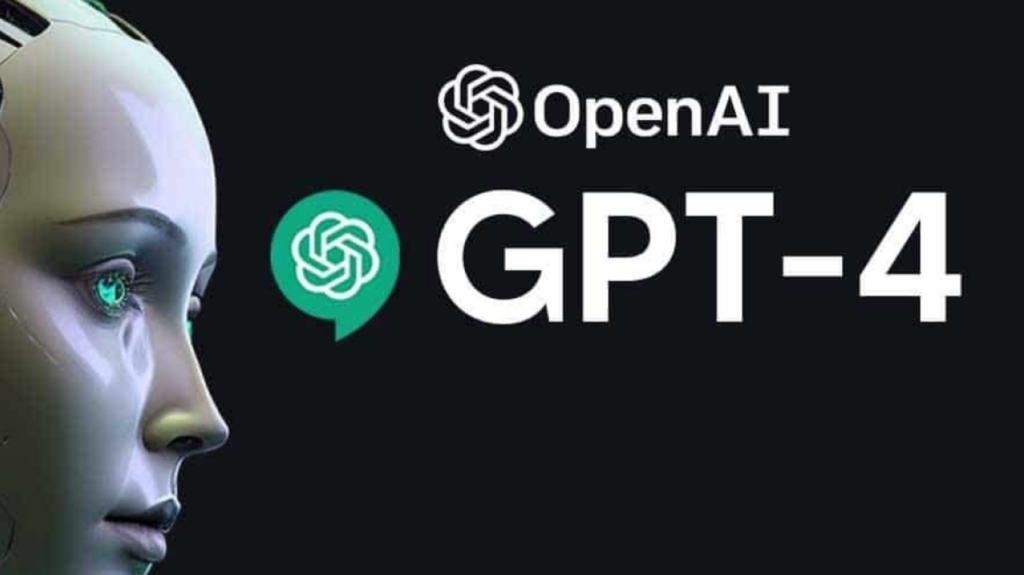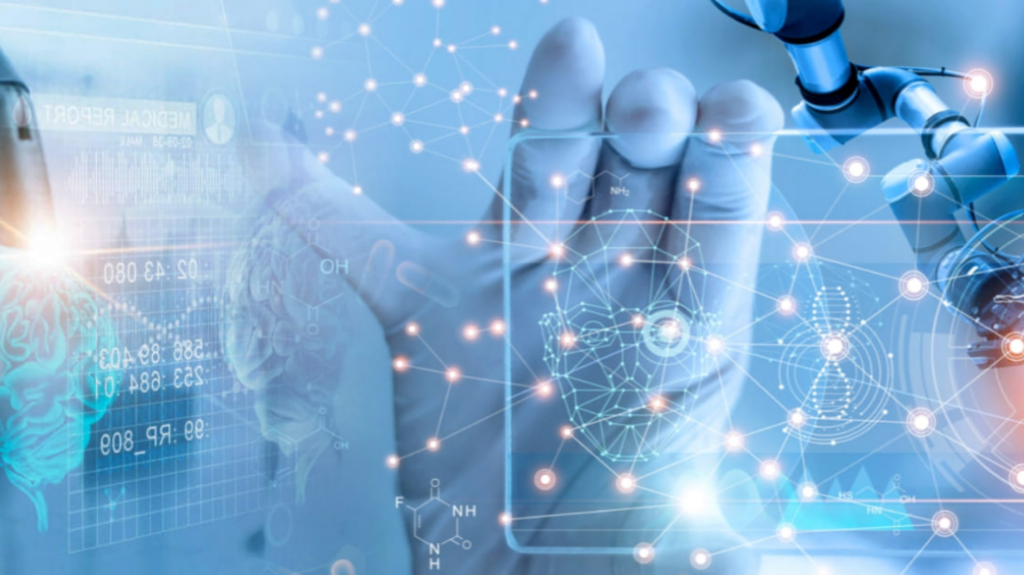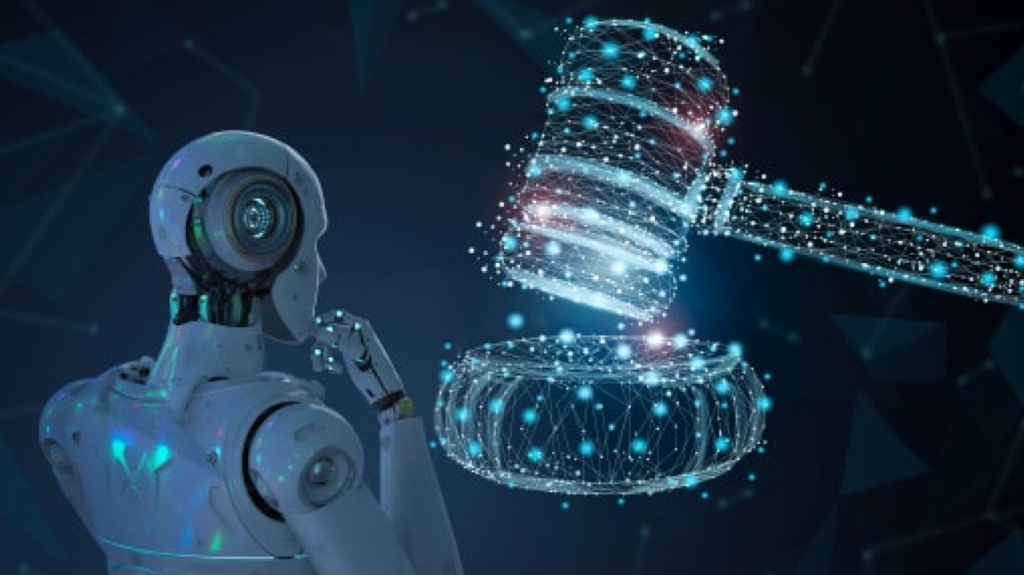Artificial intelligence (AI) is revolutionizing every industry, with OpenAI, the pioneer in AI research, at the forefront. Its ChatGPT model has achieved unprecedented growth. Specifically, it attracted an estimated 100 million monthly active users within just two months of its debut, making it the fastest-growing application ever. But what is the impact of OpenAI in healthcare applications?
Among the industries, the healthcare arena is ripe for AI-powered disruption. Healthcare practices that tap into OpenAI’s application are experiencing remarkable advancements, ultimately enhancing patient outcomes and care. In this blog, you’ll learn more about the benefits, limitations, and use cases of OpenAI in healthcare technology.
ChatGPT, GPT-4, and the Application of OpenAI in Healthcare

Elon Musk, Sam Altman, and others founded the San Francisco-based private research laboratory in 2015 partly due to concerns about the possible catastrophe resulting from the misuse of artificial intelligence.
The primary focus of OpenAI is thus to ensure that general-purpose AI serves humanity’s best interests. The potential of AI as a tool is immense. However, it must entail safety and human welfare at the forefront of development.
OpenAI makes it a point to prioritize the alignment of goals, placing them ahead of profits to ensure the most optimal outcomes.
OpenAI first step: ChatGPT
Generative Pretrained Transformers (GPT) are systems capable of comprehending and generating long strings of complex concepts. ChatGPT is a dynamic AI chatbot that allows for real-time discussions using a natural language processing (NLP) model.
It was inspired by its precursor, GPT-3, which uses unsupervised learning to mimic human writing. ChatGPT feeds data gathered from all available sources, including the filtered Common Crawl dataset, into a transformer model, establishing connections between the data and making educated estimates.
One distinctive aspect that sets GPT-3 apart is its weighting process. Its capacity to hold 175 billion parameters while handling a single inquiry positions it among the top artificial neural networks. Building upon GPT-3’s success, ChatGPT, or “GPT-3.5”, further improves these capabilities, providing more conversational and accurate responses.
OpenAI constant updates: GPT-4
Despite the ongoing buzz around ChatGPT, OpenAI has already introduced GPT-4, the advanced successor of their model. Advertised as more collaborative, creative, and accurate than ever, GPT-4, based on OpenAI’s internal evaluations, performs 40% better than GPT-3.5 at providing factual answers.
This improvement is observable in GPT-4’s and GPT-3.5’s performance in simulated exams and benchmarks like the Medical Knowledge Self-Assessment Program (75% compared to 53%). GPT-4 can deliver more reliable output while handling much more nuanced instructions. Not to mention, GPT-4 is multimodal as it accepts both images and texts to give contextual text output, whereas the previous versions allow only text-based input.
Organizations such as Be My Eyes and Khan Academy already adopted the tool to assist the visually impaired audiences. And we will surely see more use in the medical field in the upcoming months.
Unlocking the Potential of OpenAI in Healthcare

OpenAI’s advancements could revolutionize the way humans and machines interact. With numerous potential applications in healthcare, this technology could instigate a significant transformation in our systems.
Let’s dive into the various possible applications of OpenAI’s technology in the healthcare sector in pursuit of maximizing benefits.
OpenAi in Healthcare Documentation and Recordkeeping
ChatGPT can serve as a digital assistant for healthcare professionals. Not only may this OpenAI in healthcare help write medical reports like discharge summaries and clinical notes, but the chatbot could also generate automated summaries of medical histories and patient interactions, streamlining medical recordkeeping.
It can extract relevant data from patient records, grouping information into lab results, current medication, and family history, among other categories. With ChatGPT, healthcare professionals can dictate their notes, and the model would summarize essential details, including symptoms, treatments, and diagnoses. Nuance Communications, a Microsoft-owned corporation, is integrating GPT-4 into its Dragon Ambient Intelligence platform to help ease doctor workloads by utilising the apolication of OpenAI in healthcare to write medical visit notes from patient-provider conversations.
Clinical Decision Support
ChatGPT can facilitate real-time, evidence-based recommendations to healthcare providers to improve patient outcomes.
Whether it is suggesting appropriate treatment options for a specific condition, identifying potential drug interactions, or offering clinical guidelines for complex medical cases, ChatGPT’s quick and dependable support can assist clinicians in saving valuable time, reducing errors, and enhacing patient care.
On top of that, such OpenAI in healthcare allows for better decision-making for doctors and patients alike by acting as a symptom checker.
Remote Patient Monitoring
Remote patient monitoring (RPM) is an emerging field that presents a promising solution to enhance patient outcomes while reducing costs – and supporting home health preferences.
Through wearables and sensors, which transmit relevant data to healthcare providers, the use of OpenAI in healthcare can assist in RPM by evaluating the collected data. Specifically, with real-time analytics, ChatGPT can assess critical health markers. Besides, it also can alert care teams immediately when a patient’s condition potentially worsens or deviates from the norm.
More than just prompting patients to monitor their health, ChatGPT’s RPM capabilities could enable providers to intervene swiftly, preventing costly hospitalizations and minimizing other negative consequences.
Virtual Assistant For Telemedicine
The applications of OpenAI in healthcare extend to the development of virtual assistants that support users in scheduling appointments, receiving treatment, and managing their health information. With telemedicine’s increasing prominence, patients often prioritize the convenience of receiving care in their homes.
As a result, a ChatGPT-powered virtual assistant can provide patients with necessary support and direction for remote health management.
Patient Communication
With the capability to react to patient concerns and inquiries, OpenAI in healthcare can provide real-time insights on drugs, such as side effects, interactions, and contraindications.
As a translation service, ChatGPT leverages advanced language processing capabilities to facilitate effective communication between healthcare providers and patients.
The chatbot can accurately and rapidly translate medical terminology, technical verbiage, and common expressions, enabling patients to comprehend their diagnoses, treatment alternatives, and medication instructions.
Medical Education
Medical education is a continuous yet challenging cycle that healthcare professionals must undergo to stay updated with the latest research, guidelines, and practices.
Incorporating OpenAI healthcare tools, such as ChatGPT and Dall-E, may sustain the educational growth of healthcare professionals, all while providing an interactive and engaging learning experience. ChatGPT enables immediate access to relevant medical information and resources, facilitating ongoing learning and development.
Automated Image Recognition
OpenAI’s contributions to healthcare extend beyond ChatGPT. The organization has been developing and refining sophisticated models to overcome the limitations of current systems.
Their work enhancing image identification models, like CLIP, has shown the potential to boost accuracy and efficiency. The ability of OpenAI in healthcare image recognition system can autonomously scrutinize medical images and identify abnormalities, leading to enhanced patient care and more precise diagnoses.
Limitations of OpenAI in Healthcare

The emergence of new technologies has the power to impact our society and economy vastly. As a result, careful consideration is necessary before implementing OpenAI in healthcare context:
- Possible Errors: One significant limitation of this technology is its potential to disseminate incorrect medical information and false news. This is because the algorithm must learn to discern reliable sources from unreliable sources. Additionally, ChatGPT has knowledge limitations since it only contains data up to September 2021. The chatbot, for instance, will provide an incorrect response when asked about colorectal screening guidelines.
- Data Bias: Various factors can introduce bias into the data, from the collection and processing stages to decision-making. Such biases can have serious consequences, particularly in healthcare settings.
- Security: The massive amount of data that ChatGPT has access to poses privacy and ethical issues. Chat-GPT and OpenAI-powered tools are not HIPAA-compliant, making it impossible to sign Business Associates Agreements (BAA). However, the recent integration of OpenAI in healthcare with Microsoft’s Azure cloud computing platform makes for an intriguing development to watch for.
- Oversight: OpenAI’s technology operates with minimal human oversight over computer-generated responses, meaning inaccuracies or errors may go unnoticed. Human intervention may be needed to ensure the quality and accuracy of the generated text.
The incorporation of OpenAI in healthcare marks a substantial advancement in medical technology and patient care. Leveraging artificial intelligence, OpenAI is revolutionizing healthcare services, facilitating precise diagnoses, propelling research innovations, and enhancing patient results.
As we harness the capabilities of OpenAI in healthcare, it’s crucial to harmonize technological progress with ethical considerations. This balance will ensure a future where AI and healthcare interact seamlessly for everyone’s benefit.

Need help with implementing AI-powered healthcare solutions?
Choose KMS Healthcare as your technology partner. A team of experienced developers can revolutionize research, testing, integration, and delivery.
Contact KMS to learn more about our positioning as a top healthcare AI company & healthcare software development solutions provider.